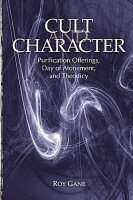Lynden O. Williams
Lynden Williams Communications
- This Dictionary is definitely worth the price. Was sitting on the fence for a while and finally took the plunge. It is detailed and extensive.
- Mr. Williams did you purchase hard copy or digital. This is one of the most confusing books that i have ever attempted to purchase Hard copy fluctuates between 200 to 400 dollars. An unavailable digital supposedly exists for $20.00, however the digital here is the only realistic item i have found. Is hard copy required for illustrations, maps ect.... I've been burned before. TY. Considering this on account of Dr. Heiser. Thank you for your time.
- Thanks, Lynden. And for the record, to avoid conflict of interest in my promotional work at Faithlife, I'm donating any royalty proceeds for the benefit of resourcing SDA pastors.
- As a minister's son that remained strongly committed to the church, I will be interested in your findings.
- It should point to the official website of the White Estate. http://www.whiteestate.org/about/egwbio.asp
- This book seeks to express the fundamental beliefs of the Adventist Church in response to questions by Walter Martin and Donald Barnhouse. The views expressed in it, was an answer to views questions being put forth be the "Evangelical" churches at that time. This background is needed in order to properly understand the change of language used between those of Adventist and the larger evangelical community.
- A second important theological point to note is that Questions on Doctrine was not written to be a well-balanced statement of Adventist belief. Rather, the content was developed to answer certain questions set forth by Martin and his colleagues. As a result, the authors announced in their introduction that “this was not to be a new statement of faith, but rather an answer to specific questions concerning our faith.” George R. Knight, ed., Seventh-Day Adventists Answer Questions on Doctrine, Annotated Edition., Adventist Classic Library (Berrien Springs, MI: Andrews University Press, 2003), xxx.
- Thus if readers are going to adequately understand the answers to the questions, they will have to understand the questions, and if they are going to understand the questions adequately, they will need to have some idea of both the general evangelical beliefs and the specifically dispensational theology of those individuals who asked them. George R. Knight, ed., Seventh-Day Adventists Answer Questions on Doctrine, Annotated Edition., Adventist Classic Library (Berrien Springs, MI: Andrews University Press, 2003), xxx.
- I have the paper set and it is very good. Written for the scholar, but not outside the realm of those without theological training. I would recommend it for every Seventh-day Adventist Pastor, and anyone serious about studying these subjects from an Adventist perspective, as well as a glimpse of what some of the reformers had to say.
- Here is a sample by Williams Shea on Vol. 2. Section Outline I. Specialized Aspects of Daniel 9 II. Length of the Prophecies of Daniel 7, 8, and 9 III. Relationships Between the Personal Figures in Daniel 7, 8, and 9 IV. Literary Structure of Daniel 9:24–27 V. Chiastic Structure of Daniel 9:24 VI. Relations Between Daniel 11 and Daniel 7, 8, and 9 VII. Overall Literary Structural and Thematic Unity of the Book of Daniel VIII. End Note: Sources for Dating Post-Exilic Sabbatical Years William H. Shea, “Chapter III: Unity of Daniel,” in Symposium on Daniel: Introductory and Exegetical Studies, ed. Frank B. Holbrook, vol. 2, Daniel and Revelation Committee Series (Washington, DC: Biblical Research Institute of the General Conference of Seventh-day Adventists, 1986), 222.
- Just a casual glance at chapter eight on Cosmology and Cosmogony shows some similarities in thoughts with Genesis. Definitely a must for those seeking a background on comparative belief systems by Israel's neighbours. Here is a sample: In Egypt, on the “First Occasion” the god Amun is by himself, the first of the gods.16 Despite the fact that Amun was said to exist before everything, he emerged from the waters. Egyptian cosmology started with the “nonexistent,” which included the absence of space and forms (i.e., some material aspects), but which was also made up of water and darkness, in which nothing was named or distinct. In their thinking this nonexistent realm continued to be present in the sea, in the dark night sky, and even in the desert—places without role or function.


